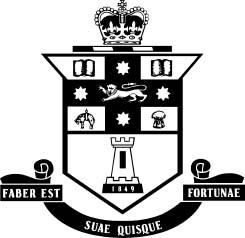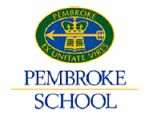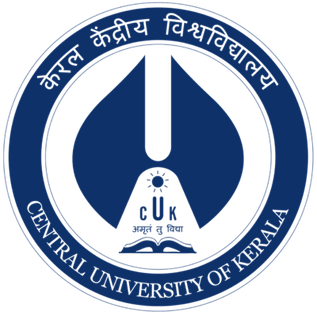
Flinders University, established as The Flinders University of South Australia is a public research university based in Adelaide, South Australia, with a footprint extending across a number of locations in South Australia and the Northern Territory. The main campus is in Bedford Park, about 12 km (7.5 mi) south of the Adelaide city centre. Other campuses include Tonsley, Adelaide central business district, Renmark, Alice Springs, and Darwin.
The Higher School Certificate (HSC) is the credential awarded to secondary school students who successfully complete senior high school level studies in New South Wales and some ACT schools in Australia, as well as some international schools in Singapore, Malaysia, Indonesia, China, and Papua New Guinea. It was first introduced in 1967, and is currently developed and managed by the NSW Education Standards Authority (NESA).

In education, a curriculum is the totality of student experiences that occur in an educational process. The term often refers specifically to a planned sequence of instruction, or to a view of the student's experiences in terms of the educator's or school's instructional goals. A curriculum may incorporate the planned interaction of pupils with instructional content, materials, resources, and processes for evaluating the attainment of educational objectives. Curricula are split into several categories: the explicit, the implicit, the excluded, and the extracurricular.

Fort Street High School (FSHS) is a government-funded co-educational academically selective secondary day school, located in Petersham, an inner western suburb of Sydney, New South Wales, Australia. Established in 1849, it is the oldest government high school in Australia and, notably, the first school not founded by a religious organisation. Today, it remains a public school operated by the New South Wales Department of Education. As an academically selective secondary school, it draws students from across greater metropolitan Sydney.
The South Australian Certificate of Education (SACE) is awarded to students who have successfully completed their senior secondary schooling in the state of South Australia.

The Australian Science and Mathematics School (ASMS) is a coeducational public senior high school for Years 10–12 located on the Sturt campus of Flinders University in Bedford Park, a southern suburb of Adelaide, the capital of South Australia. As the school is unzoned, it attracts students from all across the Adelaide metropolitan area as well as some regional and interstate locations, in addition to international students. The goal of the school is to prepare its students for university, particularly in the fields of mathematics and science. The ASMS is unconventional in its approach to education, emphasising a love of learning in both students and teaching staff; students are given the freedom to take control of their own education. ASMS aims to make students aware of their own learning and for them to become self-directed in the way they complete academic tasks.

Pembroke School is an Australian independent co-educational and non-denominational day and boarding school located in Kensington Park, a suburb 6 kilometres (3.7 mi) east of the centre of Adelaide, South Australia. It was founded in 1974 as an amalgamation of King's College, a boys' school, and the Girton Girls' School.
St Joseph's College is a Salesian Roman Catholic boys' secondary school in the outer-eastern suburb of Ferntree Gully, Melbourne, Victoria, Australia.
Norwood International High School (NIHS) is a single-campus, co-educational, public high school located in the eastern suburbs of Adelaide, South Australia.

The McDonald College is an independent co-educational specialist primary and secondary day and boarding school with speciality in the creative and performing arts, in North Strathfield, an inner western suburb of Sydney, Australia.

Chifley College Senior Campus is located in Mount Druitt, New South Wales, Australia, catering to students in Years 11 and 12. It is one of the five schools within Chifley College and is locally known as Chifley Senior.

John Septimus Roe Anglican Community School is an independent Anglican co-educational primary and secondary day school located in Perth, Western Australia.

The Hong Kong Diploma of Secondary Education Examination (HKDSE) is an examination organised by the Hong Kong Examinations and Assessment Authority (HKEAA). The HKDSE examination is Hong Kong's university entrance examination, administered at the completion of a three-year senior secondary education, allowing students to gain admissions to undergraduate courses at local universities through JUPAS. Since the implementation of the New Senior Secondary academic structure in 2012, HKDSE replaced the Hong Kong Certificate of Education Examination and Hong Kong Advanced Level Examination.

Education in Western Australia consists of public and private schools in the state of Western Australia, including public and private universities and TAFE colleges. Public school education is supervised by the Department of Education, which forms part of the Government of Western Australia. The School Curriculum and Standards Authority is an independent statutory authority responsible for developing a curriculum and associated standards in all schools, and for ensuring standards of student achievement, and for the assessment and certification according to those standards.
Columbia College is an independent not-for-profit two-year university transfer college located in Vancouver, British Columbia, Canada. The college is a registered charity and an incorporated Society composed of all Columbia College employees.

Keysborough Secondary College is an Australian dual campus government coeducational school for students from years 7–12, with campuses located in Springvale South, Victoria and Keysborough, Victoria. The four participating schools were officially merged into Keysborough Secondary College on 6 October 2008. The merger is valued at $43 million.
The Kansas Academy of Mathematics and Science (KAMS) is a two-year, residential, early-entrance-to-college program for U.S. high school juniors and seniors who are academically talented in the areas of mathematics and science. Located on the Fort Hays State University campus in Hays, Kansas, students concurrently complete their last two years of high school, while earning over 60 college credits.

Central University of Kerala (CUK) is one of the 15 central universities established under The Central Universities Act, 2009 an Act to establish and incorporate universities for teaching and research by the Parliament of India. The university is seated in Kasaragod, the northernmost district of the Indian state of Kerala. The main campus of the university is situated at Periya, 9.8 km from Kanhangad and 20 km south from Kasaragod towns. The university initially started functioning from a transit campus in Vidyanagar with its humanities schools and other amenities.
The education system in Lahore is formulated along specific modern, religious, cultural, social, psychological, commerce and scientific injunctions. Lahore is Pakistan’s largest producer of professionals in the fields of science, technology, IT, engineering, medicine, nuclear sciences, pharmacology, telecommunication, biotechnology and microelectronics. Most of the reputable universities are public, but in recent years there has also been an upsurge in the number of private universities. The current literacy rate of Lahore is 64%. The standard national system of education is mainly inspired from the British system. The system also aims to imbibe a secular outlook among the students with the awareness of the rich cultural heritage of Pakistan. Lahore has a wide range of schools, colleges and universities that caters to diverse streams.
A high school diploma is a diploma awarded upon graduation of high school. A high school diploma is awarded after completion of courses of studies lasting four years, from grade 9 to grade 12. It is the school leaving qualification in the United States and Canada.















